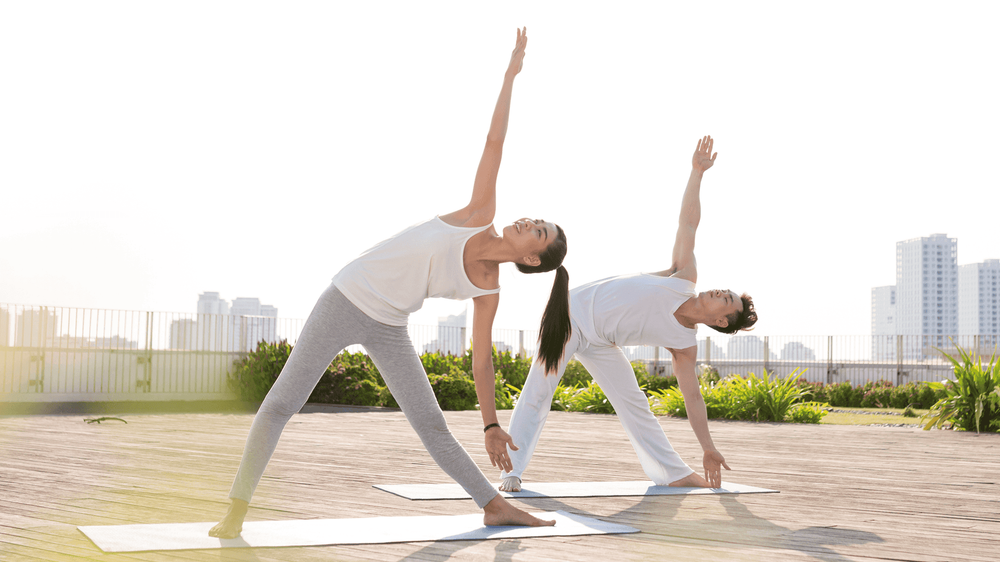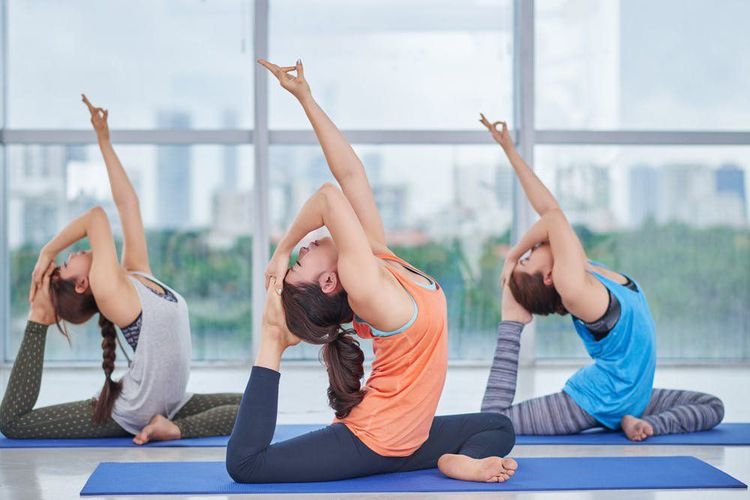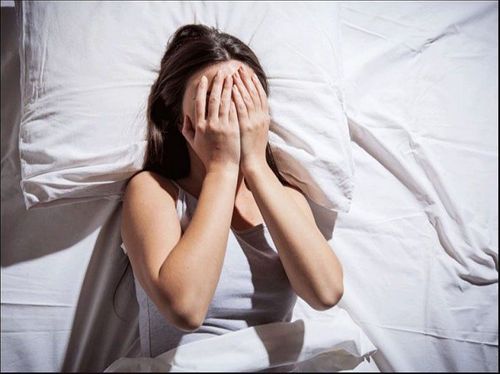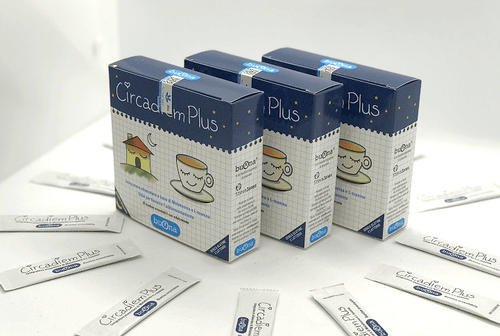This is an automatically translated article.
Stress is part of being human and it can help motivate you to get things done. However, prolonged stress can affect psychological and physiological health. The following article will help you how to reduce stress and anxiety.
1. Effective stress relief for your daily life
From small challenges to major crises, stress is a part of life. And while you can't always control your circumstances, you can control how you react to them.
When stress becomes overwhelming or chronic, it can take a toll on your health. That's why it's important to have effective stress relievers that can calm your mind and body.
Therefore, it is important that you have as many stress relievers at your disposal. You will then be able to choose a strategy that best suits your current circumstances.
A stressful and sometimes stressful life can be overwhelming, but there are steps you can take to learn to relax. Normal daily activities like shopping or traffic jams can be stressful. Work deadlines, handling children, or dealing with a difficult relationship can bring you down.
What is stress?
When you feel overwhelmed or unable to handle the situation, your body may react in a bad way. The so-called “fight or flight” response starts to get you ready to run and that creates stress.
Dr. Jonathan C. Smith, professor of psychology at Roosevelt University, founding director of the university's Mind Initiative, and author of several books on relaxation, says: A stress-free life is unhealthy and dangerous. We need a little challenge to stay alive.”
But too much stress is not good for your health. Certain situations such as isolation that you may face during a pandemic, for example, can cause ongoing stress, which in turn can lead to health problems.
Shurtleff says it's normal to feel overwhelmed by something like a global pandemic, but it's also important to find ways to relax. He does yoga about three times a week and uses the treadmill daily to help manage his worries.
He says: “Long-term stress can really affect our bodies and our brains and lead to really serious chronic diseases like anxiety and depression.”
2. How to reduce stress?
Stress and anxiety are common experiences for most people. In fact, 70% of adults in the United States say they feel stressed or anxious every day. Here are 16 simple ways to help relieve stress and anxiety:
2.1 Exercise Exercise is one of the most important things you can do to combat stress. It may sound counterintuitive, but putting physical stress on your body with exercise can reduce mental stress. People who exercise regularly have less anxiety than those who don't.
There are several reasons behind this such as:
Stress hormones: Exercise lowers your body's stress hormones - such as cortisol - in the long run. It also helps release endorphins, which are chemicals that improve your mood and act as natural pain relievers.
Exercise can also improve your sleep quality, which can be negatively affected by stress and anxiety. When you exercise regularly, you can feel more competent and confident in your body, which in turn promotes mental wellness.
Try to find an exercise routine or activity that you love like walking, dancing, climbing or yoga. Activities - such as walking or jogging - that will involve repetitive movements of large muscle groups can be particularly helpful in reducing stress.

Cách giảm căng thẳng hiệu quả với các bài tập thể dục
Perilla : Perilla is a member of the mint family that has been studied for its anti-anxiety properties. . Omega-3 fatty acids: One study found that medical students given omega-3 supplements experienced a 20% reduction in anxiety symptoms. Ashwagandha: Ashwagandha is an herb used in Ayurvedic medicine to treat stress and anxiety. Some studies show that it actually works. Green Tea: Green tea is rich in polyphenol antioxidants that provide many health benefits. It can also reduce stress and anxiety by increasing serotonin levels. Valerian: Valerian root is a popular sleep aid due to its sedative effects. It contains valerenic acid, which alters gamma-aminobutyric acid (GABA) receptors to reduce anxiety. Kava kava: Kava kava itself is a psychoactive member of the pepper family. Long used as a sedative in the South Pacific, it is increasingly used in Europe and the United States to treat mild stress and anxiety. Some supplements may interact with medications or have side effects, so you may want to consult your doctor if you have a medical condition.
2.3 Use Essential Oils/Scented Candles Using essential oils or burning scented candles can help reduce feelings of stress and anxiety. Some scents are particularly soothing. Here are some of the most calming scents:
Lavender Rose Vetiver Orange Bergamot Chamomile Neroli Frankincense Sandalwood Ylang ylang Orange or Orange Blossom Geranium 2.4 Reduce your caffeine intake Caffeine is a stimulant found in coffee, chocolate, and energy drinks. High doses can cause increased anxiety. Everyone will have different thresholds for how much caffeine they can tolerate.
If you find that caffeine makes you jittery or anxious, consider cutting back. While many studies show that coffee can be healthy in moderation, it's not for everyone.
2.5. Write it down One way to deal with stress is to write everything down. While jotting down what you're stressed about is one approach, another is to jot down what you're grateful for.
Gratitude can help you relieve stress and anxiety by focusing your thoughts on the positive things in your life.
2.6 Chewing Gum For a super easy and quick stress reliever try chewing on a stick of gum. One study found that people who chewed gum felt healthier and less stressed.
It could be explained that chewing gum induces the same brain waves as in relaxed people. Another way is to chew gum that promotes blood flow to your brain. In addition, a recent study found that stress relief was best when people chewed harder.

Nhai kẹo cao su là cách giảm bớt căng thẳng đơn giản mà bạn có thể thực hiện
2.7 Spend time with your loved ones and family Social support from friends and family can help you through a stressful time. Being part of a network of friends gives you a sense of belonging and self-worth, which can help during difficult times. One study found that it's for women in particular to take time out. Spending time with friends and children helps release oxytocin, a natural stress reliever. This effect would be referred to as 'trend and friendliness', and is the opposite of the fight-or-flight response. Remember that both men and women benefit from friendships. Another study found that men and women with the least social connections were more likely to suffer from depression and anxiety.
2.8 Laugh It's hard to feel nervous when you're smiling. It's good for your health and there are several ways it can help you reduce stress:
Reduce your stress response Relax your muscles In the long run, laughter can also help improve your immune system. translate and your mood. One study in people with cancer found that those in the laughter intervention group experienced more stress relief than those who were simply distracted.
2.9 Learn to say no Not all stressors will be within your control, but some are. Take control of the parts of your life that you can change and that are causing you stress.
One way to do this is to say “no” more often.
This is especially true if you feel like you have to shoulder more than you can handle, as having to shoulder so many responsibilities can feel overwhelming. Being selective about what you take on - and saying no to things that will unnecessarily increase your load - can lower your stress levels.
2.10 Learn to Avoid Procrastination Another way to manage your stress is to keep making it a priority and stop procrastinating. Procrastination can cause you to react, forcing you to try to catch up. This can cause stress, negatively affecting your health and quality of sleep.
Get in the habit of making to-do lists sorted by priority. Give yourself realistic deadlines and work your way up to the list. Get things done today and give yourself uninterrupted time, as switching between tasks or multitasking can be stressful in itself.
2.11 Taking a yoga class Yoga has become a popular stress reliever and fitness method for all ages. Although yoga styles vary, most share the same goal of engaging your body and mind.
Yoga mainly does this by increasing awareness of your body and your breath. Several studies have examined the effects of yoga on your mental health. Overall, research has found that yoga can improve mood and may even be as effective as antidepressants in treating depression and anxiety.
However, many of these studies are limited and many questions remain about how yoga works to reduce stress. The benefits of yoga for stress and anxiety seem to be related to its effects on your nervous system and stress response. It can also help lower cortisol levels, blood pressure and heart rate, and increase gamma-aminobutyric acid (GABA), a neurotransmitter that has a lowering effect in mood disorders.

Học yoga là một trong các cách giảm căng thẳng lo âu
A recent study in college students found that being mindful can help increase self-esteem, which in turn reduces symptoms of anxiety and depression.
2.13 Hugging Hugs, kisses, hugs, and sex can all help relieve stress. Positive physical exposure will help release oxytocin and reduce cortisol. This can help you lower your blood pressure and heart rate, both of which are physical symptoms of stress. Interestingly, humans are not the only animals that cuddle to relieve stress, but chimpanzees also cuddle with stressed friends.
2.14 Listening to soothing music Listening to music can have a very relaxing effect on your body. Slow-paced musical instruments can induce a relaxation response by helping to lower blood pressure and heart rate, as well as stress hormones. Some types of classical music, Celtic, etc. can be especially soothing, but just listening to music you like will be effective. Very mellow nature sounds. This is why they are often associated with relaxing music and meditative music.
2.15 Deep breathing Mental stress activates your sympathetic nervous system, signaling your body to go into “fight or flight” mode. During this response, stress hormones are released and you will experience physical symptoms such as a faster heart beat, faster breathing, and constricted blood vessels.
Deep breathing exercises can help activate your parasympathetic nervous system, the system that controls the relaxation response. There are several types of deep breathing exercises, including: diaphragmatic breathing, abdominal breathing, abdominal breathing, and rhythmic breathing.
The goal of deep breathing is to focus your awareness on the breath and make it slower and deeper. When you take a deep breath through your nose, your lungs fully expand and your belly contracts. This helps slow your heart rate and allows you to feel more at peace.
2.16 Spending time with your pet Having a pet can help reduce stress and improve your mood. Interacting with pets helps release oxytocin, a brain chemical that promotes positive mood.
Having a pet can help relieve stress by giving you purpose, keeping you active and providing companionship - all qualities that help reduce anxiety. While stress and anxiety can arise in your workplace and personal life, there are simple ways to relieve the pressure you feel.
If the above methods do not improve your condition, visit a medical facility, the doctor will examine and indicate the most useful treatment for you. Vinmec International General Hospital is one of the hospitals that not only ensures professional quality with a team of leading doctors, modern equipment and technology, but also stands out for its examination and consulting services. and comprehensive, professional medical treatment; civilized, polite, safe and sterile medical examination and treatment space.
Please dial HOTLINE for more information or register for an appointment HERE. Download MyVinmec app to make appointments faster and to manage your bookings easily.
Reference source: verywellmind.com












